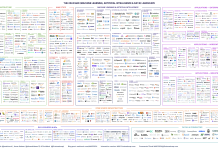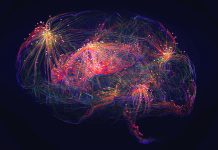Today, on World Parkinson’s Day, awareness is raised for the one million people across the EU living with Parkinson’s disease
Over one million people in the EU are currently struggling with the disease, and the number is expected to double by 2030.
In response to this growing challenge, a new EU-funded project, AI-PROGNOSIS, is revolutionising how Parkinson’s is diagnosed and managed, using artificial intelligence and digital tools to improve patient care.
A smarter approach to Parkinson’s diagnosis and care
AI-PROGNOSIS is part of the Horizon Europe research and innovation programme. The project brings together a multidisciplinary team of researchers, healthcare professionals, and technologists to create smarter, more personalised approaches to Parkinson’s care.
By using digital biomarkers collected from everyday devices like smartphones and smartwatches, AI-PROGNOSIS is creating predictive models that allow earlier disease detection, forecast its progression, and optimise treatment plans for individual patients.
The project aims to improve the quality of life for those with Parkinson’s by using AI to make care more proactive and precise. For example, real-time data from wearables can detect subtle changes in a patient’s movements or sleep patterns, offering insights that might go unnoticed during traditional clinic visits. These insights help clinicians tailor treatments more effectively and monitor patient responses over time.
Giving patients and clinicians a say
One of AI-PROGNOSIS’s most impressive features is it’s inclusive approach to development.
The project actively involves patients, doctors, therapists, and researchers in shaping the tools being created. Through workshops and focus groups, stakeholders contribute feedback that directly influences design decisions. This collaborative method ensures the final solutions are practical, user-friendly, and relevant to real-world needs.
A key result of this stakeholder engagement is the development of the mAI-Insights application, which provides healthcare professionals with regular updates and alerts about changes in their patients’ symptoms. This helps to address issues involved with clinic visits and supports quicker adjustments in treatment plans, ultimately improving patient outcomes.
Challenges with integration within the real world
Despite its promising approach, the project has faced challenges applying its tools to existing healthcare systems.
Many hospitals still rely on outdated electronic health record systems, making it difficult to incorporate advanced AI solutions. Building trust among healthcare professionals and patients also still remains a challenge, with concerns about AI reliability and its role in replacing human judgment.
To address these concerns, AI-PROGNOSIS wants transparency, education, and collaboration. Regular consultations with medical staff ensure the tools align with clinical workflows, while advisory boards offer guidance on ethical implementation and long-term strategy.
Navigating healthcare regulations and accessing quality datasets are also key challenges. Legal and ethical standards must be met to ensure the safe use of AI in healthcare, while restrictions on data sharing can limit the ability to train effective AI models.
The role of EU funding
Despite these obstacles, EU funding is important in making the project possible. Support from Horizon Europe enables the cross-border collaboration necessary for such a complex initiative. It also helps cover the extensive research, development, and regulatory work involved in creating healthcare-ready AI tools.
Running until 2027, AI-PROGNOSIS holds significant promise in reshaping Parkinson’s diagnosis and care across Europe, bringing technology and compassion together to address one of the region’s most pressing health challenges.











